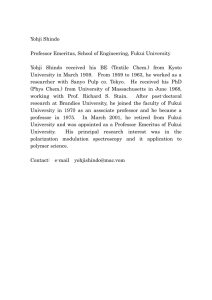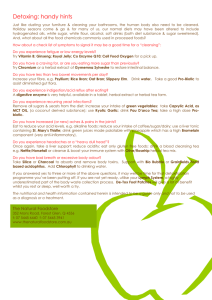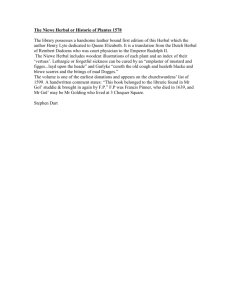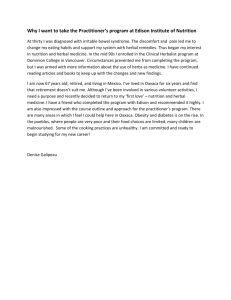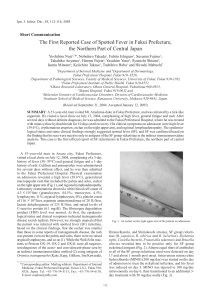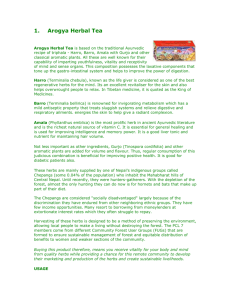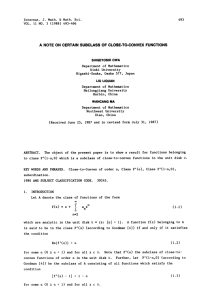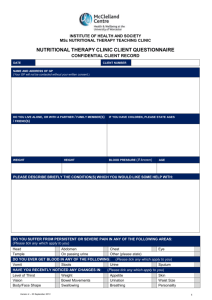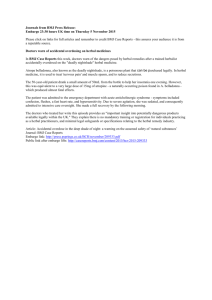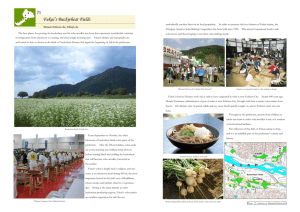A Database System for Following the Effects of Herbal Tea on
advertisement
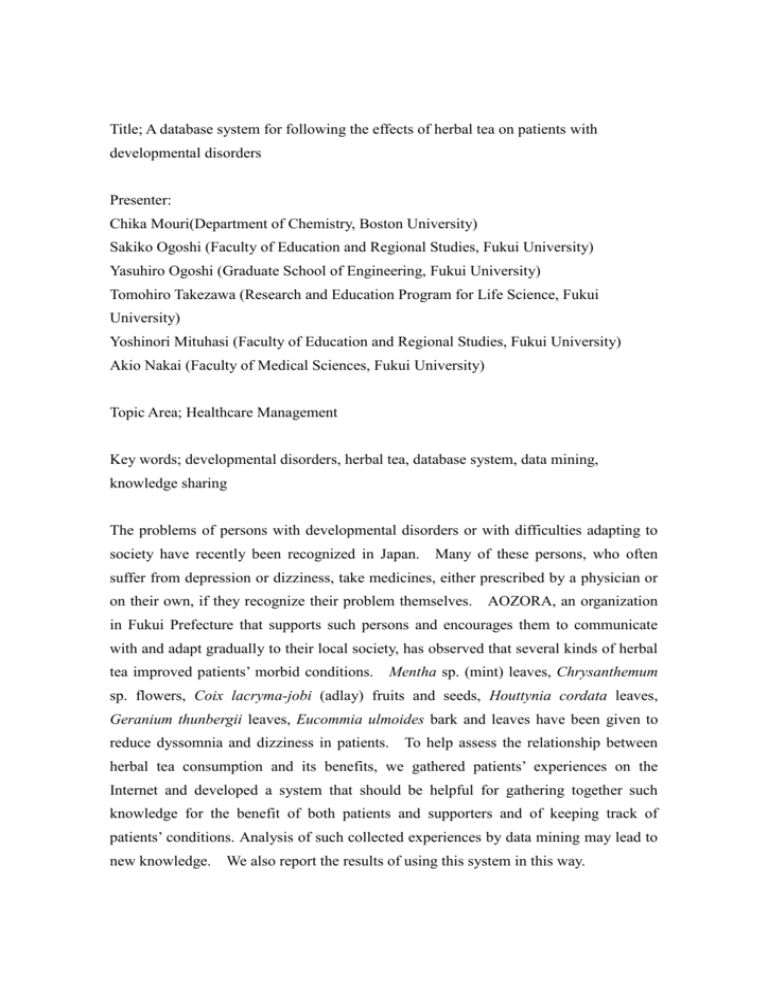
Title; A database system for following the effects of herbal tea on patients with developmental disorders Presenter: Chika Mouri(Department of Chemistry, Boston University) Sakiko Ogoshi (Faculty of Education and Regional Studies, Fukui University) Yasuhiro Ogoshi (Graduate School of Engineering, Fukui University) Tomohiro Takezawa (Research and Education Program for Life Science, Fukui University) Yoshinori Mituhasi (Faculty of Education and Regional Studies, Fukui University) Akio Nakai (Faculty of Medical Sciences, Fukui University) Topic Area; Healthcare Management Key words; developmental disorders, herbal tea, database system, data mining, knowledge sharing The problems of persons with developmental disorders or with difficulties adapting to society have recently been recognized in Japan. Many of these persons, who often suffer from depression or dizziness, take medicines, either prescribed by a physician or on their own, if they recognize their problem themselves. AOZORA, an organization in Fukui Prefecture that supports such persons and encourages them to communicate with and adapt gradually to their local society, has observed that several kinds of herbal tea improved patients’ morbid conditions. Mentha sp. (mint) leaves, Chrysanthemum sp. flowers, Coix lacryma-jobi (adlay) fruits and seeds, Houttynia cordata leaves, Geranium thunbergii leaves, Eucommia ulmoides bark and leaves have been given to reduce dyssomnia and dizziness in patients. To help assess the relationship between herbal tea consumption and its benefits, we gathered patients’ experiences on the Internet and developed a system that should be helpful for gathering together such knowledge for the benefit of both patients and supporters and of keeping track of patients’ conditions. Analysis of such collected experiences by data mining may lead to new knowledge. We also report the results of using this system in this way.
